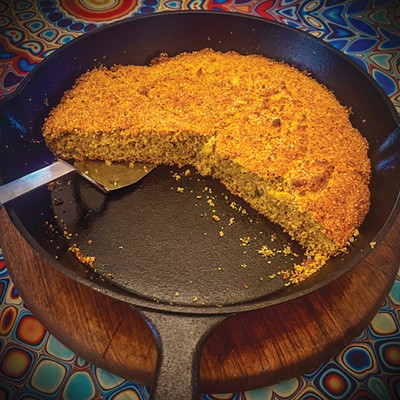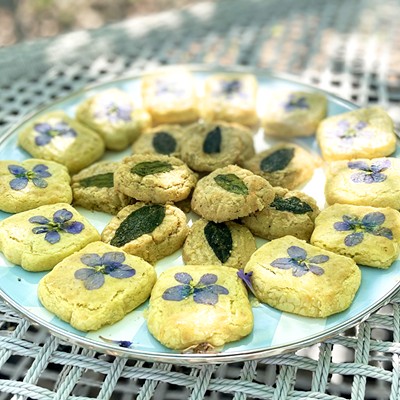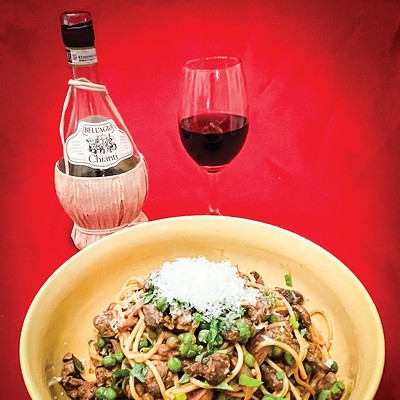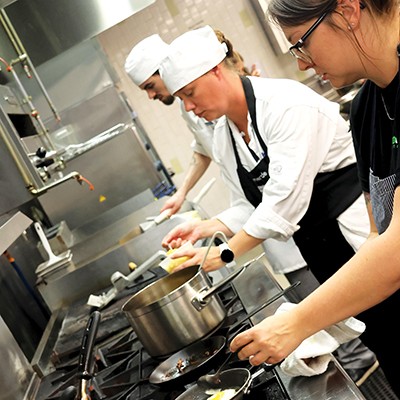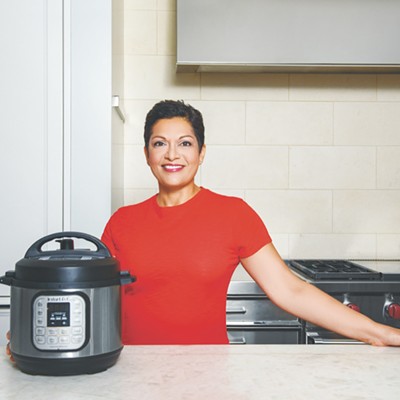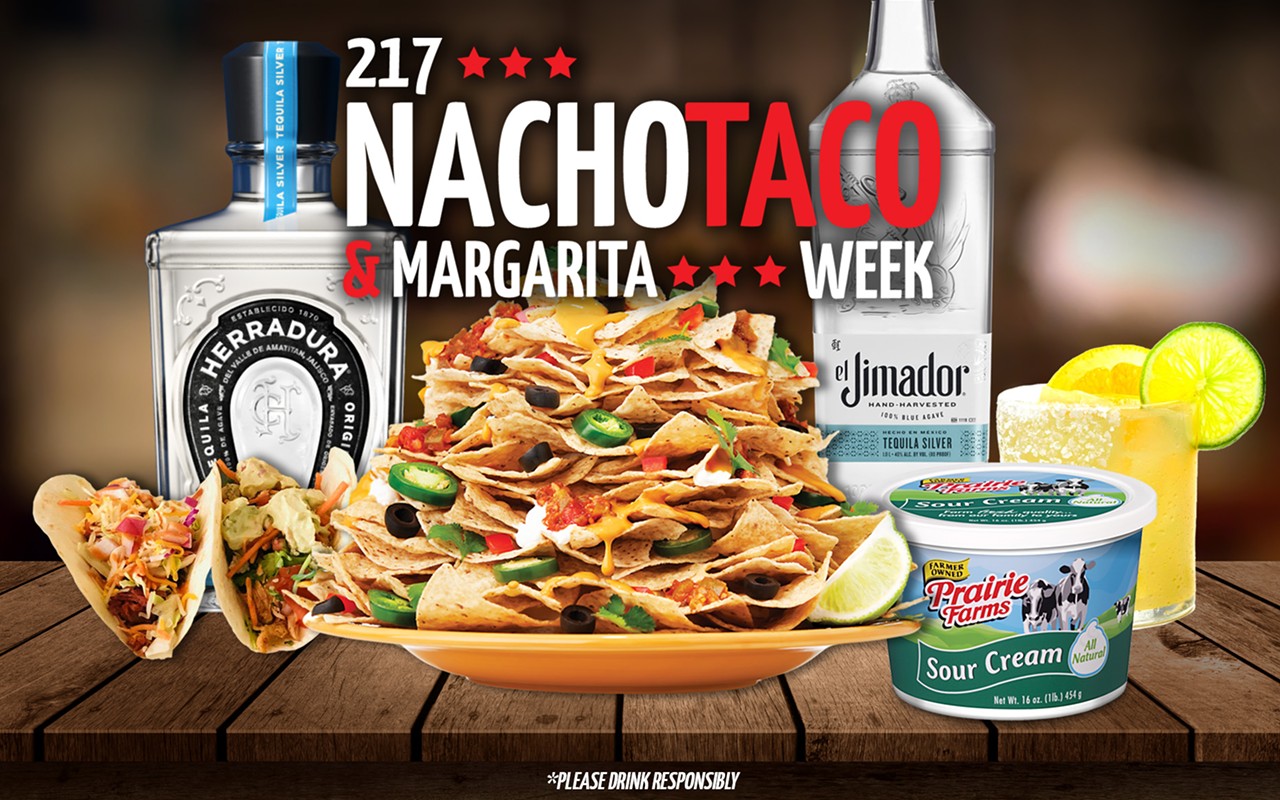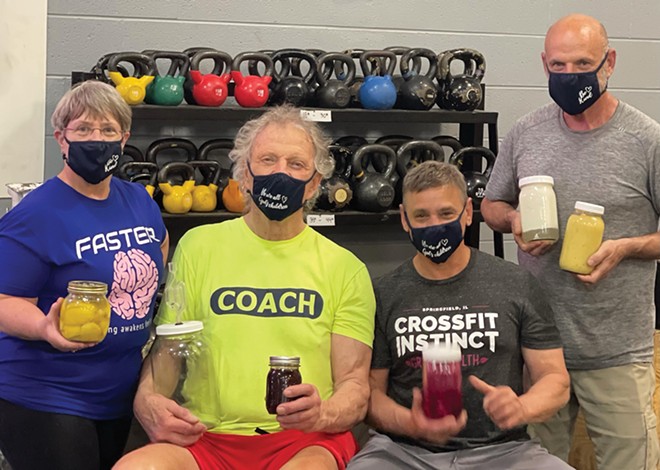
The COVID-19 has been a major wake-up call. It's made us realize how vulnerable we are. The Spanish Flu pandemic was a hundred years ago. In all the years hence, the advances in modern medicine and pharmacology haven't been able to prevent over 3 million COVID deaths worldwide. This pandemic should be motivating us to accept increased personal responsibility for maintaining our well-being.
A COVID-19 infection is most severe in people over 60 or with chronic diseases like diabetes, heart disease and conditions that affect their immune system. Most chronic diseases are a consequence of our modern Western diet of industrialized, processed foods. "Across the world, especially in times of the pandemic, there is a growing consciousness that the multiple energies we are living through have their roots in an unjust, nonsustainable industrial-globalized food system," writes Vandana Shiva, world-renowned environmental activist and food sovereignty advocate.
Nearly 70 percent of our immune system is housed in our gastrointestinal tract. While frequent hand washing, masking and social distancing are crucial in preventing the spread of COVID, taking steps to ensure our digestive system is functioning properly is essential to having a good immune response. Our digestive system is home to 100 trillion bacteria, both good and bad. The balance of these bacteria, known as gut microbiota, is affected by diet and medications, especially antibiotics. Anything that can feed good bacteria and keep them plentiful is essential for having a good immune system. The balance of gut bacteria is changing because the microbiomes in our bodies are not regularly replenished the way they were in past generations. This is due to the changes in modern diet – particularly the rise in processed foods. What's resulted is a microbiota that lacks the resilience and diversity required to establish balanced immune responses.
Prebiotics are types of fiber non-digestible by humans, but easily digestible by the beneficial bacteria residing in our guts. Probiotics are substances containing live cultures of beneficial bacteria that repopulate your gut and restore balance to your digestive system. Both are essential for maintaining good health.
Probiotic supplements are being heavily marketed and sales are soaring. However, many experts question their effectiveness, and instead recommend naturally fermented foods and beverages as a better option. These include sauerkraut, kimchi, yogurt, kefir, kombucha and kvass. "Supplements labeled as 'prebiotic' or 'probiotic' don't deliver the same benefits as fermented foods," says Cleveland Clinic researcher Gail Cresci. "There are challenges to keeping microbes viable in encapsulated tablets. It's also very, very important to know that each strain of bacteria is not the same as the next. For example, lactobacillus has hundreds of different strains, and each one may behave differently. People like to use supplements because they think one size fits all, but it doesn't."
Fermentation is an age-old process that has long been used to help foods last longer and keep them from spoiling. Fermentation not only boosts the food's shelf life and nutritional value but also gives your body a dose of healthful probiotics. Fermented foods boost the effectiveness of our immune systems. Fermentation also enhances the taste of foods, giving them added complexity.
Adding fermented foods to your diet isn't hard. You can find naturally fermented foods at natural-food stores and many supermarkets. But fermentation is easy and safe to do at home and can be a great money saver. Mike Suhadolnik of Springfield is a 77-year-old CrossFit coach who makes his own sauerkraut on a regular basis. He eats a cup a day and reports that it only costs him $3 to make 3 quarts, about 12 days' worth. By comparison, the same amount of high-quality naturally fermented sauerkraut from an artisanal producer could retail for as much as $40.
For the past two years, Mike has been fermenting celery, cabbage, lemons, beets, turnips and cauliflower. He says that 20% of what he eats is fermented. "I want to know exactly what I am eating and that the ingredients have not been pasteurized. Fermented foods are potent foods, incredibly bioavailable." He has become a fermented foods evangelist and several members of the CrossFit Longevity group he coaches have followed suit.
Joni Colle is a nurse at Memorial Hospital who's been fermenting since 2019. "Fermented foods are the best way of restoring a healthy gut after completing a period of intermittent fasting," Colle says. "I prefer to break an extended fast by first eating some sort of fermented food. The goal is to decrease inflammation and boost the immune system. My love of fruits and vegetables, plus not being a picky eater, has opened up a whole new world of experimenting with a flavorful variety of fermented foods."
David Radwine is a 62-year-old Springfield chef. He always has an assortment of ferments in the works such as sauerkraut, yogurt and beet or ginger kvass. "I've been fermenting for several years now. It's a small investment in time for a large investment in health. My coconut milk yogurt is made with a special probiotic strain called L. reuteri, which supports a healthy GI system. I enjoy the taste of many fermented foods and I feel good knowing I'm eating something healthy to support the good gut bacteria that benefit many aspects of my life."
Frank Ramirez of Springfield, 61, started fermenting his own foods to help reverse his type 2 diabetes and get off insulin. "Although I am not as accomplished as the others fermenting, I've had success with sauerkraut. I've fermented green cabbage, red cabbage, Korean cabbage and made some kimchi. My biggest success has been making my kraut hot. I'm using ghost pepper flakes to achieve taste bud satisfaction – after all, I'm a Ramirez! I enjoy about a cup a day. My health journey is always a work in progress."
Fermenting your own foods and beverages isn't hard and shouldn't be intimidating. Ancient peoples have been doing it for millennia. Ever since the start of the pandemic, I've been living and traveling in a 350-square-foot school bus and I've continuously had kombucha, yogurt, kraut, kimchi and sourdough starter bubbling away in my tiny kitchen. You don't need to purchase any fancy equipment. At minimum, all you need is salt and Mason jars. An inexpensive kitchen scale will help you up your game. Special lids with airlocks will add convenience. In upcoming columns I'll walk you through the steps to begin fermenting your own foods and beverages and share my go-to recipes.
Peter Glatz welcomes any reader questions about home fermentation. He can be reached at [email protected].



